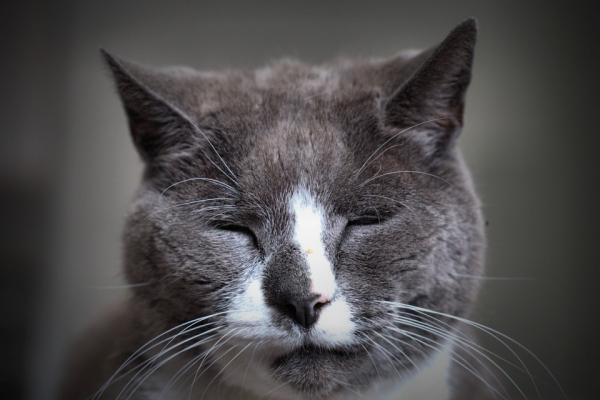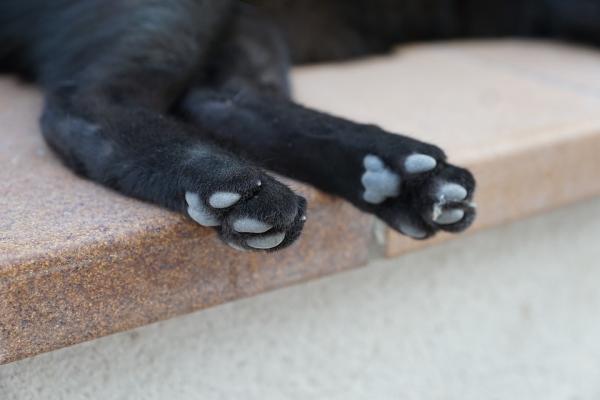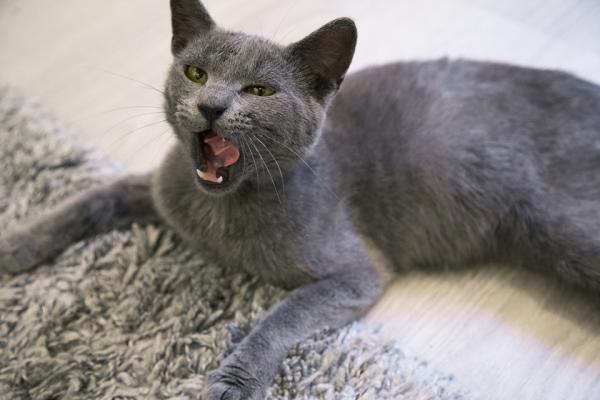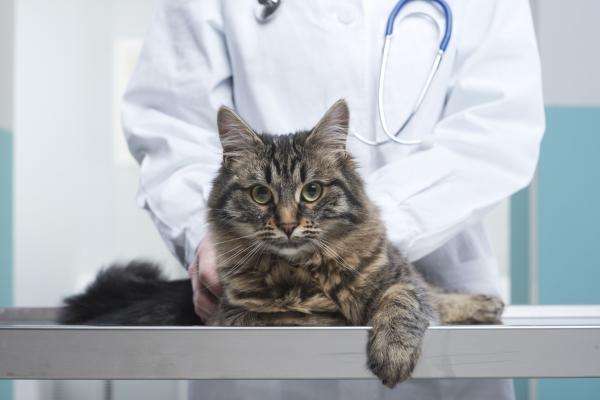Senile dementia in cats – Symptoms and treatment

People who have decided to welcome a cat in their home disagree with that popular idea that qualifies the cat as an animal surly and excessively independent, as these are not inherent characteristics of their genuine behavior.
A domesticated cat lives on average 15 years and during this time, the emotional bond that can be formed with its owner is undoubtedly very strong, in addition, accompany our pets throughout their different life stages and during aging, It comforts us as owners.
During aging we will observe multiple changes in the cat, some of them pathological but unfortunately associated with old age. In this article we tell you about the symptoms and treatment of senile dementia in cats.
What is senile dementia?
Senile dementia in cats is known as feline cognitive dysfunction, which refers to cognition / comprehension capabilities of the environment that begin to be depleted approximately from the 10 years of age.
In cats that exceed 15 years of age, this pathology is very frequent and the manifestation of it includes a variety of symptoms ranging from joint problems to hearing problems.
This disorder diminishes the quality of life of the cat, therefore it is important that we remain attentive because the understanding of the disorder It will help us improve the life of our pet.

Symptoms of senile dementia in cats
A cat affected by senile dementia may experience one or more of the symptoms shown below:
- Confusion: It is the most predominant symptom, the cat is shown wandering and confused, since you may not remember where your food or your sandbox is.
- Changes in behavior: The cat demands more attention or on the contrary it becomes aggressive.
- Increased meows: When the cat meows repeatedly during the night it may be expressing disorientation in the dark, which causes it nervousness and anxiety.
- Changes in sleep patterns: The cat shows loss of interest and spends much of the day sleeping, instead, at night it wanders.
- Changes in the toilet: Cats are very clean animals that spend much of the day preening, the cat with senile dementia has lost interest in their own grooming and we can see the less shiny coat and care.
If you observe any of these symptoms in your cat it is essential that you go to the veterinarian as far in advance as possible.

Treatment of senile dementia in cats
The treatment of senile dementia in cats is not used with the aim of reversing the situation, unfortunately this is not possible and the neurological damage caused by old age can not be recovered in any way, the pharmacological treatment in these cases is intended the loss of cognition stops and does not get worse.
For this, a drug containing the active ingredient selegiline is used, but this does not imply that it is suitable for all cats, in fact, only the veterinarian can assess in each case if it is necessary to implement a Pharmacotherapy.

How to care for the cat with senile dementia
As we mentioned at the beginning of the article, At home we can do a lot to improve the quality of life of our cat, let’s see below how:
- Minimize changes in the environment of the cat, for example, do not change the layout of the furniture
- Reserve a room where your cat can remain calm when you receive visitors, since Excessive stimulation in the environment does not suit you
- Do not change your accessories, if you go outside, monitor it and when you go back into the house, leave it in your space, so that it does not become disoriented
- Increase the frequency of gaming sessions but it reduces its duration, it is very important that the cat remains exercised within its possibilities during old age
- Love your cat, with a soft bristle brush to help keep your fur in good condition
- Place ramps if your cat can not access the usual places where he liked to spend some time

This article is merely informative, in .com we do not have the faculty to prescribe veterinary treatments or make any kind of diagnosis. We invite you to take your pet to the veterinarian in case of any type of condition or discomfort.
If you want to read more articles similar to Senile dementia in cats – Symptoms and treatment, we recommend that you enter in our section of Other health problems.


